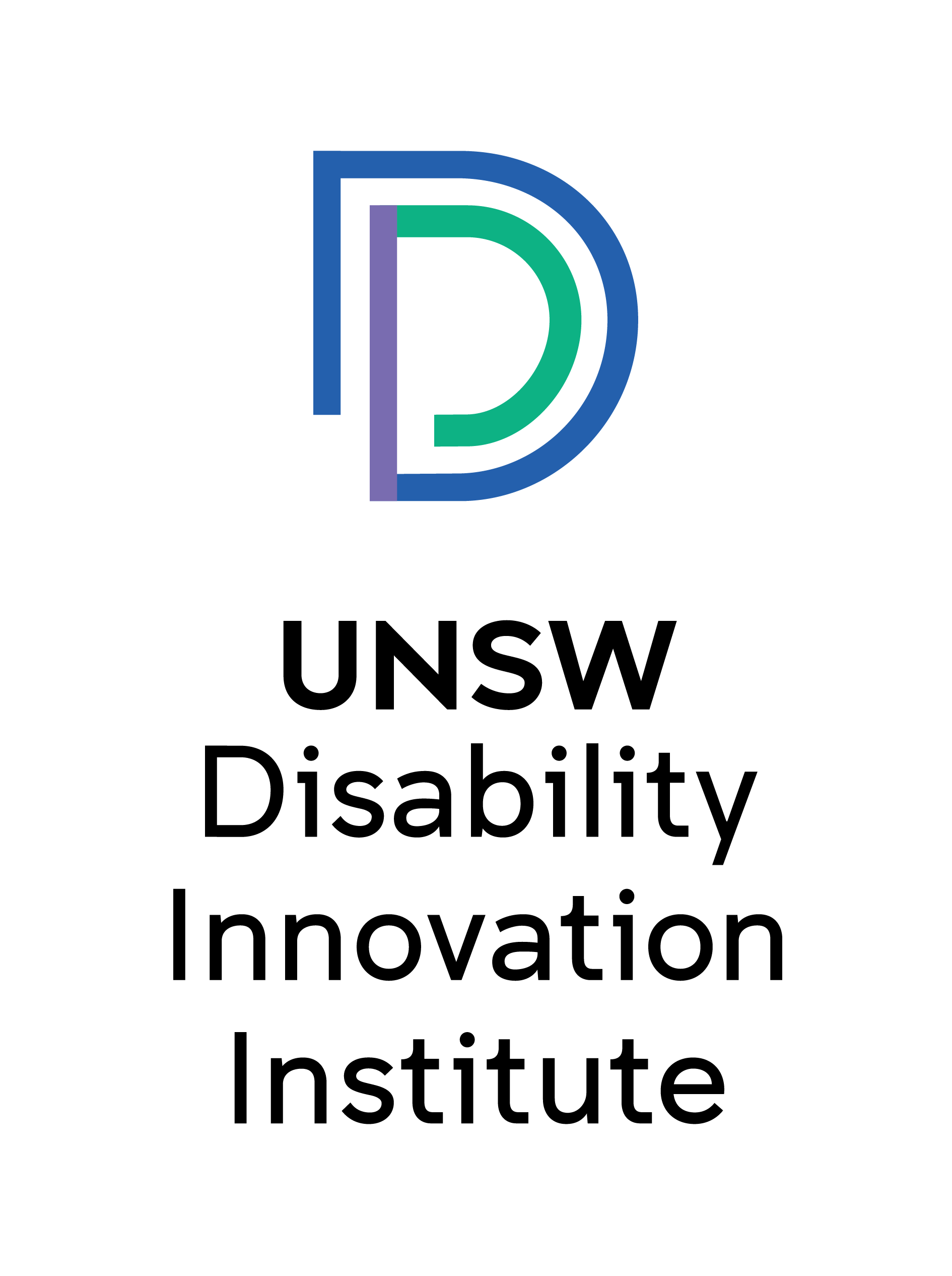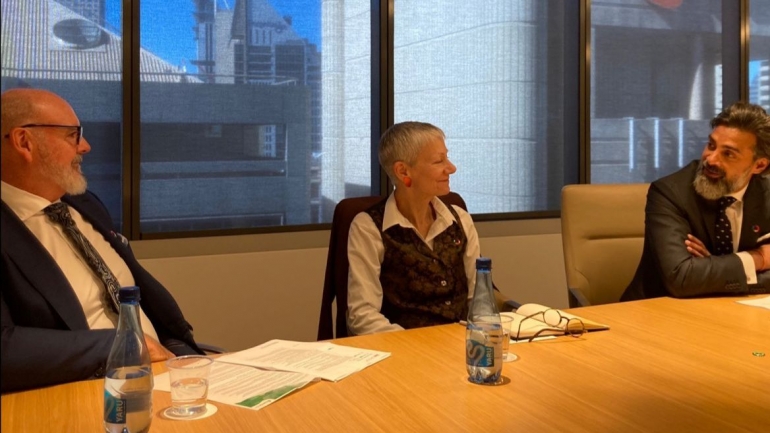May each year marks two days of significance to those interested in equality and justice: the International Day Against Homophobia, Biphobia, Interphobia and Transphobia (IDAHOBIT), on 17 May, and Global Accessibility Awareness Day (GAAD), on 20 May.
This year DIIU Director Jackie Leach Scully was invited to speak at two external events, both marking IDAHOBIT Day or GAAD, and in each case focusing on the intersection of disability discrimination and other forms of exclusion and oppression.
On 17 May Jackie joined Ross Miller of Equality Australia at a panel at Westpac Banking headquarters in Sydney. With an in-person and online audience of almost 200, Jackie discussed issues of multiple intersectionality – between disability and ethnicity, sex, gender identification, and so on – in the academic and corporate worlds. Among the questions the panel discussed was how an organisation can be inclusive without being tokenist or placing unrealistic expectations on representatives of minority groups. Many people with disability are aware of the pressure – sometimes self-imposed – to excel at their jobs in order not to ‘let the side down.’
On 20 May, Jackie was invited by the Employee Resource Group of the Reserve Bank of Australia to share her thoughts on accessibility for people with disability, in an interview with Luci Ellis, Assistant Governor (Economic) of the RBA. Although the GAAD particularly highlights digital accessibility, the conversation was more wide-ranging.
At both events Jackie discussed the consequences of the global COVID-19 pandemic for inclusion. One effect was a rapid switch in workplace practices to working from home. Ironically, some people with disability benefited from this shift. People with limited mobility, for example, or issues of fatigue or needing special equipment, have long been advocating for greater flexibility that would enable them to do their jobs from home if necessary. Usually, these requests were knocked back as being unfeasible, impractical, too expensive, or just ‘not how we do things’. During COVID it became clear that such apparently insurmountable barriers to accessibility are generally quite easy to overcome -- when it is ‘normal’ people and not just people with disability who want them.
Digital accessibility for everyone, disabled and non-disabled, also improved exponentially as the workforce demanded urgent solutions to enable people to meet, discuss and work remotely.
The lesson here is first, that changes in behaviour that help people with disability can help others as well; and second, that the barriers faced by people with disability are often just the result of lack of imagination or will for change. These points ensured that the conversations at Westpac and the RBA included a close look at the real meaning of inclusion and accessibility, how to acknowledge the particular issues of intersectionality, what happens when the needs of different groups can’t all be accommodated. Finally, in an optimistic note for the future, both events highlighted how people who experience different kinds of exclusion or discrimination can come together in solidarity to push for a transformed society.


